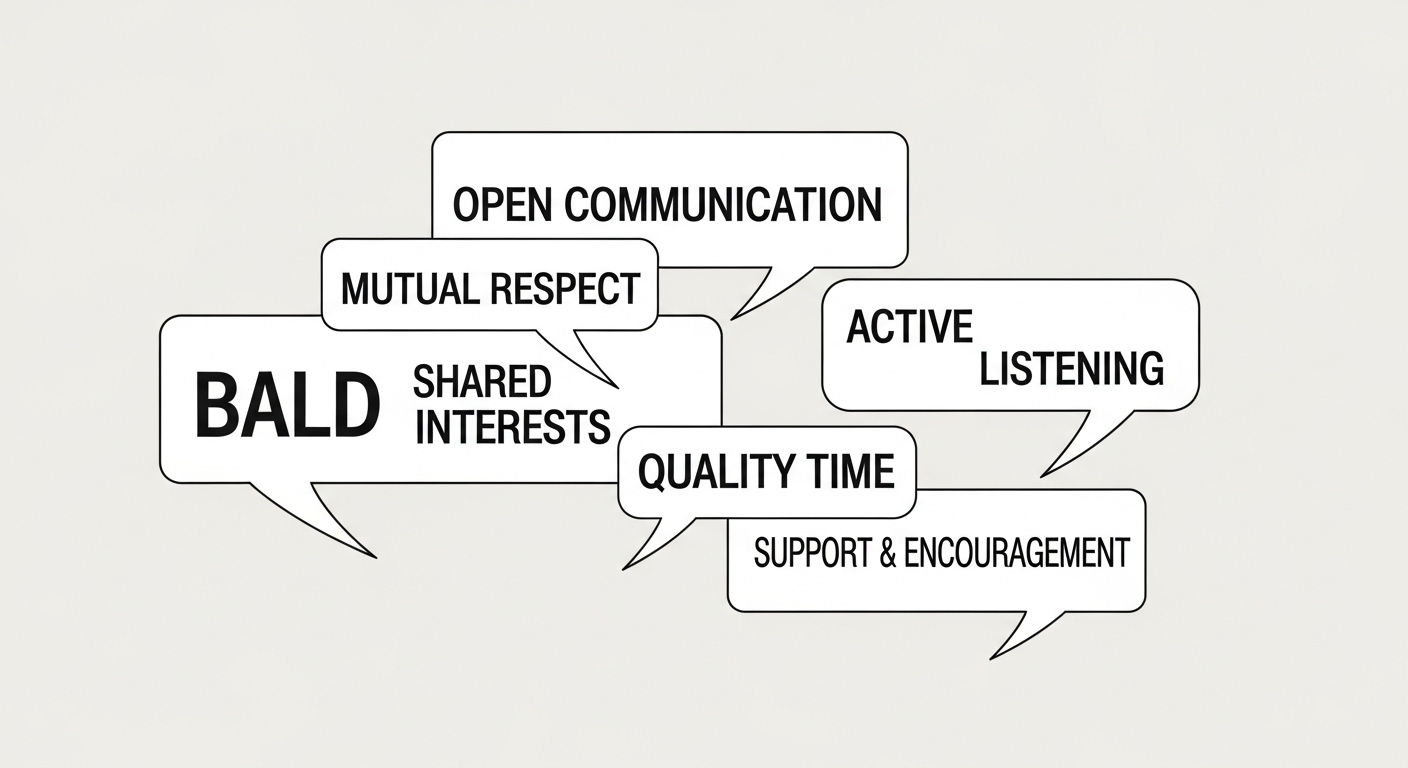Faithfulness In Small Things: The Secret To A Strong Marriage

You probably came here because you want something steadier than grand gestures and sweeping vows. You want something that lasts. The secret most couples underestimate is not a single heroic event but what you do every day. This is where everyday faithfulness lives: in the tiny, repeatable acts that communicate love, trust, and commitment. Jesus puts it plainly in Luke 16:10, “Whoever can be trusted with very little can also be trusted with much” — a principle that applies to marriage as much as to ministry or business. Read it here: Luke 16:10.
In this article, you’ll find practical, spiritually grounded ways to cultivate everyday faithfulness in your marriage. You’ll learn why small acts matter more than you think, how to create sustainable habits, how to navigate seasons when you fail, and how faithfulness builds spiritual intimacy. You’ll also get image prompts you can use to illustrate each major section, placed roughly every 300–400 words, so the visuals reinforce the ideas. If you want a marriage that’s resilient, you don’t have to reinvent the wheel — you just need to be faithful in small things.
What Luke 16:10 Really Means for Your Marriage

When Jesus said, “Whoever can be trusted with very little can also be trusted with much” he was teaching a principle about character: reliability in small matters demonstrates true integrity. In marriage, those “very little” things are the daily choices you make—responding to texts, keeping promises about dinner, being on time for bedtime stories, apologizing when you’re wrong. Each small choice either deposits into or withdraws from the mutual bank of trust you share.
You probably know what it feels like to be noticed by small, consistent actions—someone who remembers how you take your coffee, who fills the pantry when it’s empty, who takes the kids when you need a moment. Those acts aren’t glamorous, but they are powerful evidence of love. The Bible repeatedly links faithfulness to character and blessing. For example, Jesus’ commendation in Matthew 25:21 celebrates the faithful servant’s consistent stewardship: “Well done, good and faithful servant!” Read the verse here: Matthew 25:21.
If you want a strong marriage, start with the little things you can do today. That kind of consistency—everyday faithfulness—creates a rhythm that outlasts passion’s peaks and troughs. You’ll discover that small acts produce compound interest in trust, intimacy, and peace.
Why Small Acts Matter More Than Grand Gestures

You might think big romantic moments define a marriage, but consistency does the heavy lifting. Neuroscience and relationship research show that predictability and reliability reduce stress and increase attachment security. When your partner learns they can count on you in small ways, their brain registers safety. That safety is the soil in which intimacy, communication, and cooperation grow.
Consider how you feel when your partner follows through on a small promise versus when they don’t. A broken promise about a dozen small items—forgetting to call, skipping a planned date, or failing to follow up on a logistical detail—adds up. Conversely, choosing everyday faithfulness by answering a text, preparing a meal, or picking up dry cleaning signals priority and care. These actions communicate: “You matter to me, even in the mundane.” That’s powerful because it turns love into a lived reality rather than an abstract claim.
Small acts are also easier to maintain. Grand gestures require planning and resources; everyday faithfulness depends on choices you can make consistently, even in seasons of exhaustion. Those choices become habits, and habits shape identity. When you identify as a person who shows up—in small, reliable ways—your actions will align accordingly. The long-term result is a marriage that feels steady, dependable, and safe.
Everyday Faithfulness Builds Trust Over Time

Trust isn’t a switch you flip; it’s a bank account you build. Every small promise kept is a deposit. Every overlooked follow-through is a withdrawal. You’ll find that when you lean into everyday faithfulness, you reduce anxiety in your relationship because both of you can reliably predict responses and behavior. Imagine the difference between wondering whether your partner will show up versus knowing they usually will. That difference is huge.
The influence of small acts also shows up in conflict. Couples who practice everyday faithfulness often weather disagreements better because they’ve already built a foundation of goodwill. You’re more likely to give each other the benefit of the doubt, to assume good intentions, and to approach disputes with repair rather than defensiveness. In short, everyday faithfulness creates a buffer that helps your marriage survive mistakes and misuse.
Of course, faithfulness isn’t performative. It’s not a checklist you tick off to earn points. When your everyday actions spring from love, humility, and a willingness to serve, they align with the heart of biblical instruction about marriage and character. Proverbs encourages steadfastness: “Let love and faithfulness never leave you” (see Proverbs 3:3-4). That verse points back to the same truth: steady faithfulness is central to a life—and a marriage—of wholeness.
Practical Habits That Demonstrate Everyday Faithfulness

You don’t need a manual with a thousand rules. Start with a few core habits you can do consistently. These habits are repeatable, simple, and transferable across seasons of your life.
- Show up in small, scheduled ways: keep date nights or coffee check-ins consistent; show up for routines your partner values.
- Keep short commitments: return calls and texts within a reasonable time; follow through on immediate promises.
- Prioritize household follow-through: complete the chores you agreed to, even the ones you dislike.
- Practice quick repairs: apologize quickly, make amends without piling on conditions.
- Record and remember: use reminders for birthdays, anniversaries, or small preferences like favorite snacks.
Each habit is an expression of everyday faithfulness. You’re not proving your love by grand statements; you’re embodying it on Monday morning when everyone is tired and the sink is full. That consistency shapes the daily narrative of your marriage.
You might think, “But what about spontaneity?” Everyday faithfulness doesn’t kill surprise; it creates the trust that makes surprise meaningful. When your partner knows they can rely on you, a spontaneous gift or unexpected excursion is a cherry on top, not compensation for neglect.
Quick Rituals That Pack a Big Punch

Rituals are tiny, regular acts that mark priority and create rhythm. They’re not heavy obligations; they’re signals that say, “You matter to me.” Examples include a five-minute evening debrief, a morning hug before work, a weekly gratitude check, or a brief prayer together before meals. Rituals stabilize you both, especially during busy seasons.
They’re also scalable. Your five-minute ritual as newlyweds might become a shared bedtime prayer when you have kids. The key is consistency. Rituals can be mundane but their predictability breeds comfort and connection. When you make these rituals both spiritual and practical, you reinforce the deepest parts of your relationship: loyalty, shared values, and presence.
These small patterns are part of everyday faithfulness because they are ordinary acts repeated over time, each one quietly saying, “I’m choosing you.”
What to Do When You Fail at Small Things

You will drop the ball sometimes. You will forget, be late, or burn dinner. The difference between a marriage that heals and one that hardens is how you respond when those small failures happen. Everyday faithfulness includes the willingness to repair quickly and honestly.
Start by owning the mistake. A brief, sincere apology—without excuses—goes a long way. Then make a practical repair: reschedule what you missed, take on the next chore without being asked, or write a note acknowledging the impact. These actions restore trust because they show you value the relationship over your pride.
Forgiveness is a two-way street. You should practice receiving apologies with grace. That doesn’t mean ignoring patterns; if small failures become consistent, it’s time for a more honest conversation about capacity, priorities, and supports. But when the occasional slip occurs, choose repair. The Bible frames forgiveness around mercy and restoration. For example, Ephesians 4 calls you to be kind, compassionate, and forgiving, even as Christ forgave you (see Ephesians 4:32). Choosing restoration reaffirms your commitment to everyday faithfulness.
When Small Failures Reveal Bigger Patterns
Sometimes, many small failures point to deeper issues: exhaustion, resentment, unmet needs, or misaligned expectations. If everyday lapses are frequent, you need to diagnose the system. Ask practical questions: Are you both overcommitted? Are expectations clear? Do you need outside help for childcare or household labor? Honest conversation and, if needed, counseling can reset patterns before they calcify.
Don’t confuse occasional failure with character assassination. Everyone slips. What matters is the response and the commitment to repair. When you combine consistent repair with a posture of humility, you model the biblical path of reconciliation that strengthens marriage over time.
You can also lean on spiritual practices—prayer, confession, corporate worship—to find humility and courage for change. The Bible encourages believers to restore relationships gently and to support one another in love (see Galatians 6:1-2). Those practices help you return to everyday faithfulness with renewed energy.
Building a Culture of Reliability in Your Home

Every family develops a default culture. You can shape yours intentionally. Culture is built from repeated choices, rituals, and expectations—everything that falls under the umbrella of everyday faithfulness. If you want your home to be a place of trust and hospitality, design routines and conversations that reinforce generosity, presence, and honesty.
Start by making agreements visible. A shared calendar that both of you update, clear chore distribution, and a weekly check-in are simple tools. Make space for celebration when someone keeps a streak of consistent behavior. Reward consistency with gratitude rather than criticism for missed steps. That shift from correction to appreciation fosters cooperation instead of rebellion.
Teach and model values to your children, too. When they see you prioritize small faithful actions—showing up for school events, following through on discipline, or praying together—they internalize those behaviors. You’re not raising a perfect family; you’re building a legacy of everyday faithfulness that will outlast any single generation.
How to Keep Momentum Without Burning Out
Consistency doesn’t mean you both grind every day without relief. Everyday faithfulness works best when it’s sustainable. Set realistic expectations. If both of you are exhausted, downsize your rituals rather than abandon them. The aim is steady presence, not heroic martyrdom.
Another key is mutual support. When one spouse knows the other is temporarily overwhelmed, they can step in. That kind of reciprocity is part of what everyday faithfulness looks like: a rhythm of give and take that recognizes seasons and needs. You might rotate responsibilities during busy seasons, outsource tasks, or simplify routines. The point is to keep the core promises visible and intact while adjusting the load.
Finally, celebrate small wins. A consistent week of follow-through is worth noticing. You’ll find that positive feedback loops are powerful: gratitude fuels more faithful action.
Measuring Growth: Signs Your Everyday Faithfulness Is Working

You can’t measure intimacy in a spreadsheet, but you can notice patterns. Here are signs that everyday faithfulness is making a difference in your marriage:
- You argue without building walls; repair comes quicker.
- Trust replaces suspicion; you believe the best about each other.
- You experience fewer crisis-level fights because small issues are handled early.
- Intimacy feels safer and more spontaneous.
- You share fewer resentments and more gratitude.
These are outcomes of repeated small actions. You’re not chasing perfection; you’re cultivating a stable environment where both of you can flourish. The spiritual fruit of this approach shows up as peace, patience, and kindness—qualities described in Galatians 5:22-23, which outline the fruit of the Spirit. See the passage here: Galatians 5:22-23.
Practical Scripts and Phrases That Express Everyday Faithfulness

Words matter. When you practice short, specific phrases, you lower the barrier to repair and connection. Here are a few scripts you can use:
- “I missed that—I’m sorry. How can I make it right?”
- “I know you’re tired. I’ll take care of dinner tonight.”
- “I appreciate you for doing that. Thank you.”
- “Can we take five and talk about this calmly?”
- “I want to be dependable. Help me know what would help.”
These lines aren’t magical, but they model accountability and openness. They also communicate a posture of everyday faithfulness: willing to be known, corrected, and present.
Remember to pair words with action. Sincere apologies without change will erode trust. Everyday faithfulness is both speech and deed.
The Spiritual Dimension: Everyday Faithfulness as Worship

Everyday acts of faithfulness are also spiritual practices. When you serve your spouse with humility, patience, and love, you echo Jesus’ teaching and example. Scripture charges believers to love sacrificially and to be faithful in every role. Ephesians 5:25 instructs husbands to love their wives as Christ loved the church—an image of sacrificial, steady love. Read it here: Ephesians 5:25.
Similarly, love described in 1 Corinthians 13—patient, kind, not self-seeking—matches everyday gestures that put the other first. See 1 Corinthians 13:4-7. When you practice everyday faithfulness, you’re not merely maintaining a good marriage; you’re living out a kingdom ethic that honors God and reflects his character in your relationship.
In prayer, you can ask for steadfastness, patience, and humility. You can invite God into your daily routines and ask for eyes to see where faithfulness matters most. Many couples find that praying together—briefly and regularly—becomes one of those small rituals that powerfully sustains their bond.
Everyday Faithfulness in Busy Seasons: Kids, Work, and Caregiving

Life brings seasons that test your capacity to be consistent. A newborn, long work hours, caring for aging parents—each requires reallocation of energy. Everyday faithfulness adapts in these times. It’s not about matching past levels of effort but about being intentional in the small ways that matter.
When you’re exhausted, choose rituals that are low-cost but high-impact: a ten-second check-in call, a touch on the shoulder, a text that says “Thinking of you.” Use technology and planning to reduce friction—a shared shopping list, meal delivery on tough weeks, or help from a trusted friend or family member. Prioritize the non-negotiables: eye contact, a consistent bedtime hug, and a weekly check-in.
In seasons of caregiving, remind each other of the shared purpose. Talk about the load openly. Ask for and accept help. The posture of everyday faithfulness becomes showing up for each other as teammates, not competitors. The goal is to sustain intimacy and mutual care through adaptive, small, dependable gestures.
The Long View: Everyday Faithfulness and the Marriage You Want
If you want a marriage that thrives over decades, think in terms of seasons and compounding effects. Everyday faithfulness is like watering a garden; it’s not always dramatic, but it’s essential for growth. Over time, those daily acts become the story you tell about your marriage. They create memory, trust, and a safe environment for both of you to grow individually and together.
Imagine looking back in twenty years and seeing a life built from thousands of small faithful moments: the consistent presence at recitals, the faithful payment of promises, the habit of quick apologies, the weekly ritual of checking in. That legacy is priceless. You’ll likely value the quiet fidelity more than the headline moments. The Bible commends steady faithfulness in people who steward their responsibilities well (see Luke 16:10 again).
So commit to the small things today. Make one new habit. Repair a recent fracture. Celebrate a week of consistent follow-through. Everyday faithfulness isn’t flashy, but it lasts. It’s the quiet engine that powers a marriage through decades.
Final Encouragement
You don’t need perfection. You need persistence. Everyday faithfulness is available to you in the small choices you make this week: return that text, keep that date night, apologize quickly, and create a small ritual. Over time, these choices will reshape your marriage into something steady, spacious, and secure.
If you want to start right now, pick one small commitment you can keep this week and tell your partner about it. Ask them to pick one too. Then celebrate the completion together. Those tiny wins are the foundation of a strong marriage.

Explore More
For further reading and encouragement, check out these posts:
👉 7 Bible Verses About Faith in Hard Times
👉 Job’s Faith: What We Can Learn From His Trials
👉 How To Trust God When Everything Falls Apart
👉 Why God Allows Suffering – A Biblical Perspective
👉 Faith Over Fear: How To Stand Strong In Uncertain Seasons
👉 How To Encourage Someone Struggling With Their Faith
👉 5 Prayers for Strength When You’re Feeling Weak

📘 Jesus and the Woman Caught in Adultery – Grace and Mercy Over Judgement
A powerful retelling of John 8:1-11. This book brings to life the depth of forgiveness, mercy, and God’s unwavering love.
👉 Check it now on Amazon 🛒💥
🔥 “Every great message deserves a home online.” 🌍💬🏡
Don’t let your calling stay hidden. Start a Christian blog or website using Hostinger — with 99.9% uptime, a free domain, and SSL, your voice can shine for God’s glory anytime, anywhere.
💥 Begin today. 🛒 Try it RISK-FREE! ✅
✝️ “Your body is God’s temple — care for it with purpose.” 💪💖🏛️
Renew your energy and restore balance naturally. Mitolyn helps support a healthy metabolism, giving you the vitality to live out God’s calling with strength and confidence.
🔥 Unlock Your Metabolic Power! ⚡Burn More Calories & Feel Great With Mitolyn. 💪
👉 Start Today. 🚀 Check Price Now. 🛒💰
💰 As a ClickBank & Amazon Affiliate, I earn from qualifying purchases.
📖 Acknowledgment: All Bible verses referenced in this article were accessed via Bible Gateway (or Bible Hub).
🚀 Want to explore more? 👉 Dive into our new post on Why Jesus? and experience the 🔥 life-changing truth of the Gospel!





